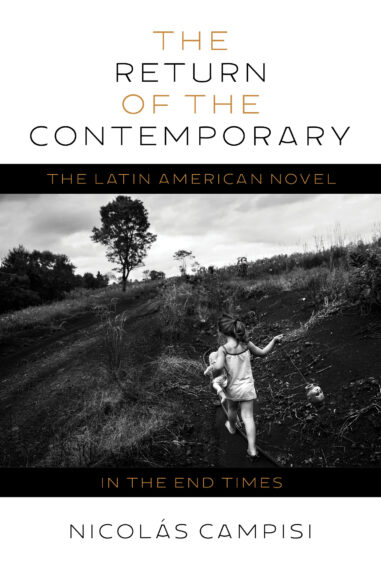
Hardcover $60.00
Request Exam or Desk Copy. Request Review Copy
The Return of the Contemporary
The Latin American Novel in the End Times
The Return of the Contemporary acts as an antidote to ecocritical analysis that takes the apocalypse as the enemy to defeat, a stance that too often results in doomism. Campisi interrupts this understanding with multifield insights that incisively counter the danger of facile moves toward both historicism and presentism.

